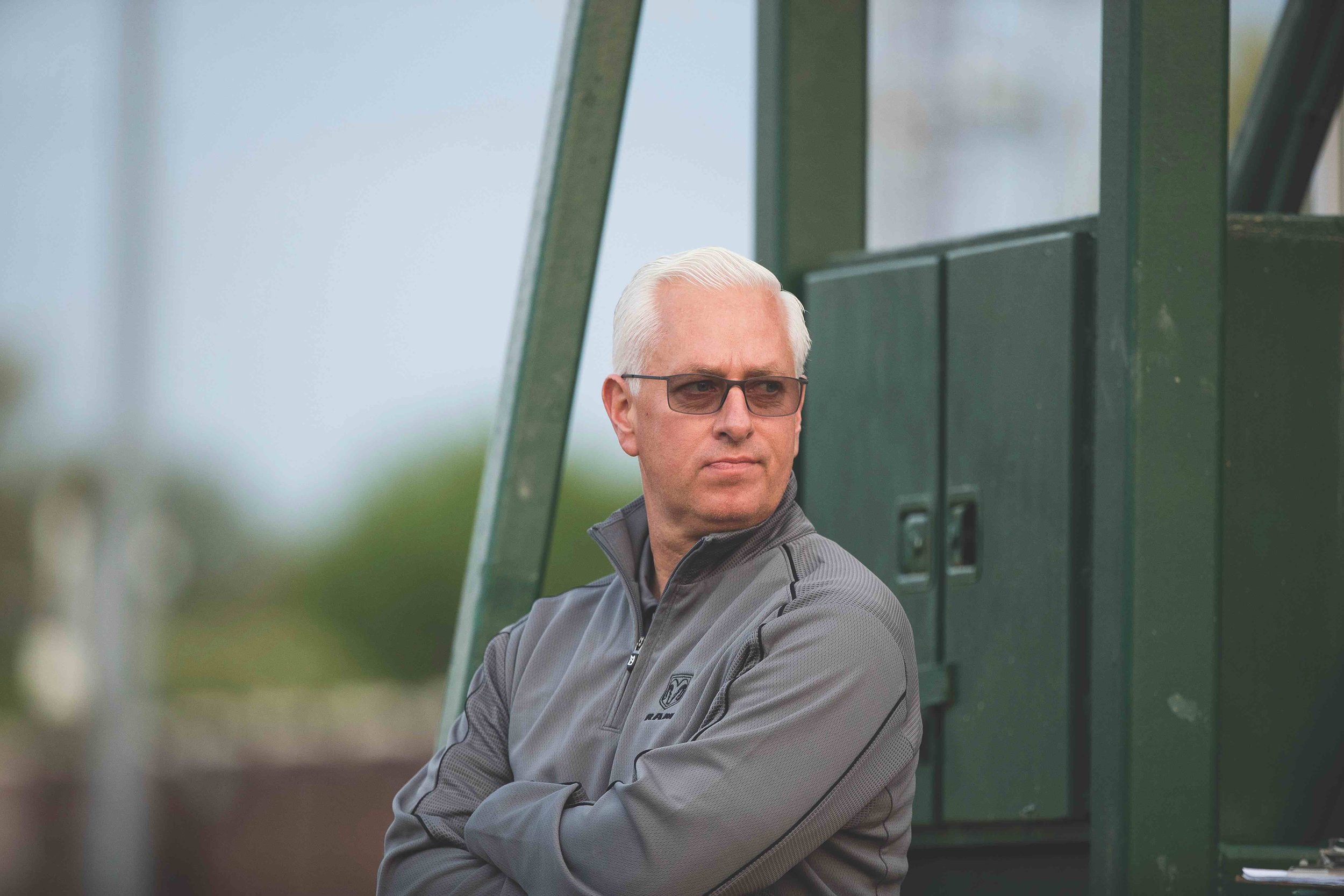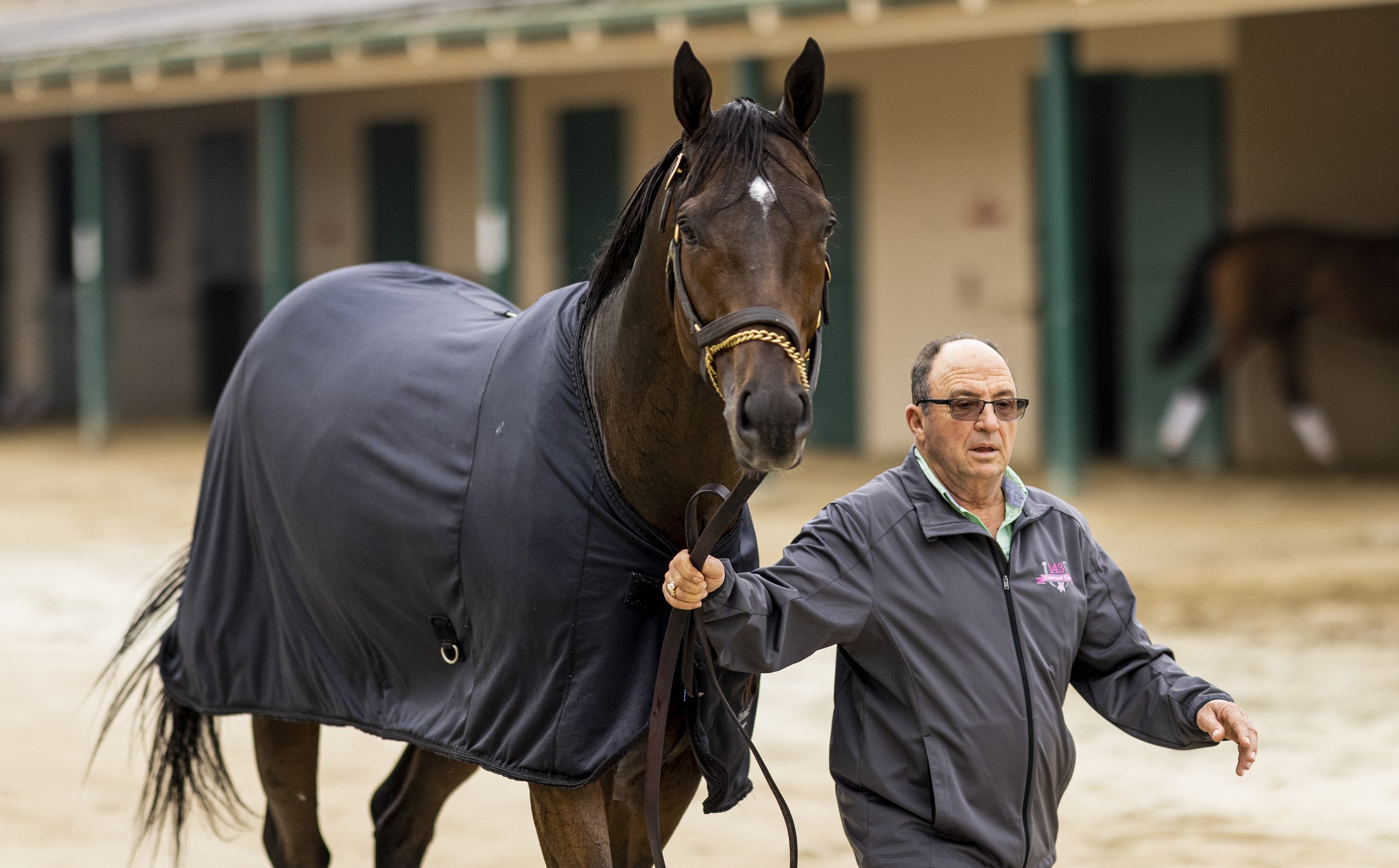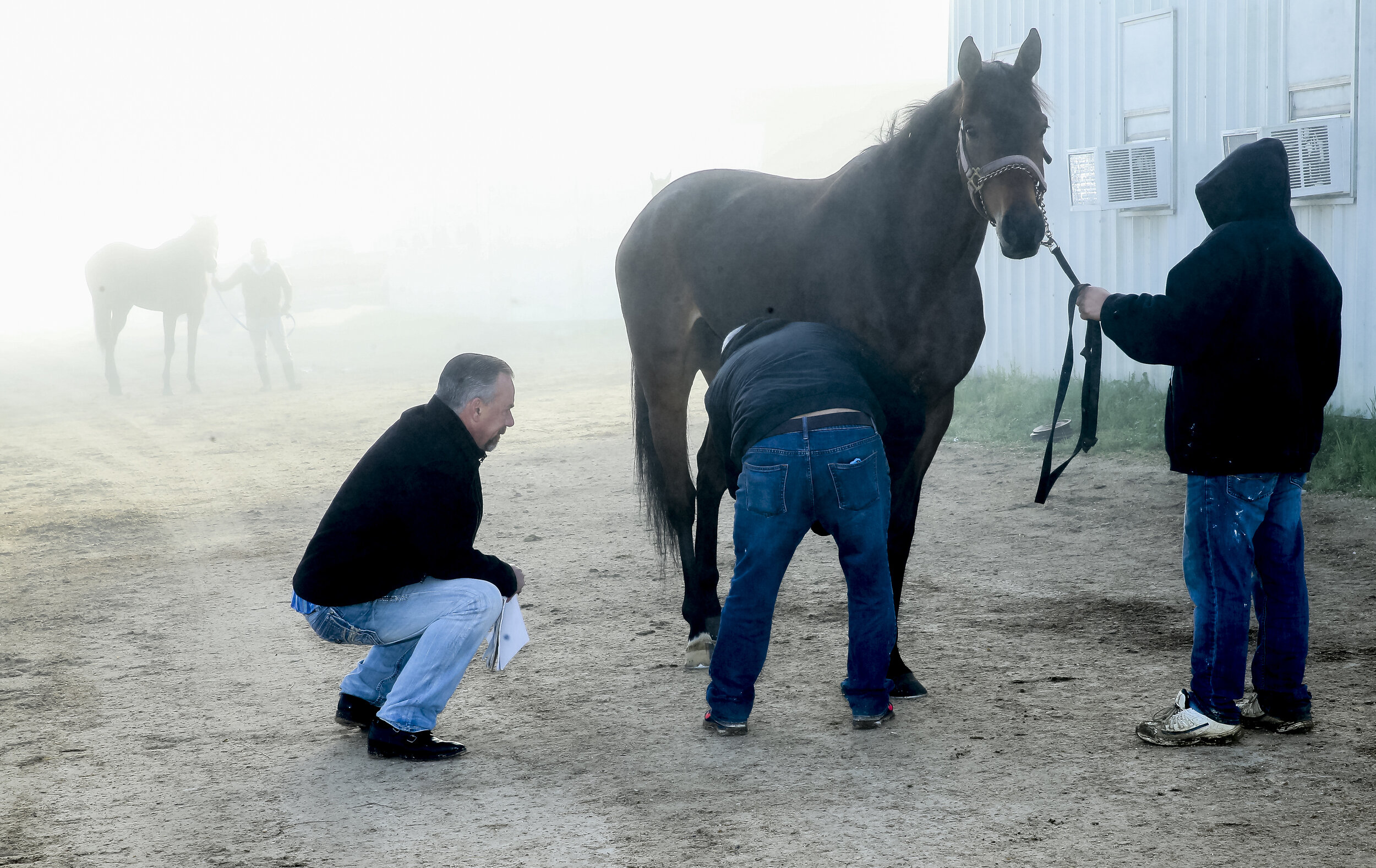#Soundbites - Why are the average number of starts and field size declining annually?
Article by Bill Heller
The 2024 Jockey Club Fact Book showed that the average field size run in 2023 races was 7.40, down from 7.59. Thoroughbreds’ average number of starts also dipped from 6.01 to 5.87. Back in 1990, the average field size was 8.91 and the average number of starts 7.94. Why are the average number of starts and field size declining annually?
Todd Pletcher
I think the number starts, in a lot of cases, is management. I think over the years trainers have become more conservative about how many starts horses have with more time between races. More rules about when you can train your horses may be a factor. And the foal crop is having an absolute impact.
Dale Romans
That’s a good question. It’s above my pay grade. I’d say the reduction in foals every year. Also, it’s a lot more difficult to run a horse. More horses are scratched by veterinarians.
Barclay Tagg
The horses just aren’t as hardy as they used to be. Justify, he ran six times and he’s one of the leading sires in the country. And he didn’t start until his three-year-old season. You can’t do basic therapy anymore. These horses are athletes and you need to take care of them. You’ve got to be able to train your horses. They make it really hard. You can’t pinfire your horses’ shins. You can’t blister a horse any more. Horses don’t even feel that. It’s about the calmest thing you can do. They’ve got the wrong people making these decisions.
Wayne Catalano
It’s very simple. The foal crop has been down for a long time. It should be 40,000 (In 1990, it was 40,333; last year an estimated 17,200). Obviously, it’s going to catch up with us. Also, you’ve got the new ruling body. It’s a different game these days. You have people coming up that don’t know how to take care of horses.
Brian Lynch
Is it the foal crop? That would be my answer to that. There’s always concern that the tracks haven’t been the best. There have been more breakdowns than I’ve ever seen. More to the point, it’s the foal crop.
Mark Casse
I think it’s pretty simple. I run over a thousand starts a year. I have to enter over 3,500 times to do that. I would have 50 percent more starts if there were races for me. That tells you. I’m lucky because we have options. I can look at different tracks. But I can have 15 horses in my barn with no races for them.
When I first started, they didn’t publish every trainer’s statistics. They’re all worried about their percentages. Their horses stay in the barn.
The other thing, in my opinion, the state programs have really hurt, and I’ll tell you why. Fifteen, maybe 20 years ago, I went to California, I never got a long maiden long race. The Cal-bred horses did. That’s another factor.
Ron Ellis
The truth is with HISA coming in and veterinary restrictions, we can’t run the horses as often as we used to. All the restrictions and all the veterinary requirements, including expensive scans we’re under now, are certainly one of the reasons. We have a lot more restrictions.
Karl Broberg
Golly, where do you begin? I was looking at the Fact Book last night, and what I was most concerned with was looking at foal crops by region. I began shaking my head. Every region is down. In the future, there’s only going to be racing in Kentucky and New York. It’s returning to the sport of kings. I think what’s missed, due to the economics, is that people are giving up on horses much quicker. That’s a huge factor. Also, there are fewer opportunities.
Tom Proctor
Wow. You would need more than a sound bite. I’d be forever telling you why. I don’t have a say in how this business goes. There are people who win a zillion races and their opinions don’t matter.
Karl Broberg - Profile
By Bill Heller
On his way to becoming the nation’s leading trainer in victories for the third straight year, Karl Broberg was living his dream—one begun when his dad pried him out of elementary school to go to the track—until he received a phone call the night of May 13, 2016. Then a second call. And the third—the worst one, telling him his wife had fallen overboard on a cruise she was on...a Mother’s Day gift with some of her gal pals...and was never seen again. She had drowned.
“I was at Prairie Meadows,” Broberg said. “I got a call from one of her friends on the trip. `We can’t find Samantha.’ Your mind goes crazy. You say, `She’s on a cruise ship. She’s fine.’ And then I got another call a couple hours later. They still can’t find her. Later that night, they gave me a call that they reviewed a video that showed her falling off. She was never seen again.”
How did he go on?
“You don’t have a choice,” he said. “The first thing you have to do is hold the family together. It was the toughest thing in my life. I came home and had to share what happened. My girls were seven, eight and 11. You grieve. Life is short. You never know. You have to enjoy every day.”
Two days later at Lone Star Park, less than seven miles from his home in Arlington, Texas, Broberg took his three daughters with him to saddle one of his horses. “There were some people who were critical to me—that I took my daughters to the track two days after it happened,” he said. “I wasn’t going to sit home with them and cry. We won with the very first horse that night. The girls were in the winner’s circle. They’re crying. The jockey, C.J. McMahon, was crying. Everybody was crying. Me, too.”
Asked if work was a welcome diversion from his tragedy, he said, “One hundred percent.”
But suddenly, the number of calls he’d get from owners wanting to claim horses diminished. “It’s understandable,” Broberg said. “Everybody knew I had primary custody of all my girls. After my wife passed, I could immediately tell the client personnel was shrinking. There’s natural trepidation that he’s not going to be able to keep this going.”
He kept it going. In 2019, he led trainers for the sixth consecutive year with the unworldly total of 547 victories from 2,130 starts, 79 less than Hall of Famer Steve Asmussen needed to finish second with 433 victories. Broberg’s win percentage, 25.7, is outstanding by any measure.
Broberg also cracked the Top Ten in earnings for the second consecutive year, finishing 10th with a career-best $9.2 million, evidence that he’s improving the quality of his stable while he races primarily at tracks in Texas, Louisiana, Oklahoma and Arkansas.
“He works harder than anybody I’ve ever met in my life, and I’m a hard worker,” his friend and occasional horse partner Mike Franklin, said. “His mind never shuts off. He never stops handicapping. It’s phenomenal. He sees things in the Racing Form others don’t see. I don’t know how he does it. He never sleeps. He’s a workaholic. He loves it.”
Franklin, who owns a car dealership in Houston, Texas, was a trainer for 10 years before giving it up five years ago. He met Broberg when Broberg claimed one of his horses. “That’s the first time we met, at Delta Downs in 2010,” Franklin said. “Then one day, we both had horses in a $5,000 claimer two stalls apart. I think mine ran third; his horse was second. Neither got claimed.”
After the race, Broberg said to Franklin, “I’ll sell you mine for $3,000.” Franklin said, “Okay.” Anxious to see his new horse, Franklin immediately went to Broberg’s barn, where Broberg’s assistant, Christie, unaware of their deal, “ran me out of the barn,” Franklin said. He called Broberg, and they laughed. Franklin took the horse anyway, and later they owned several horses together. “They did well,” Franklin said.
Broberg’s stable has grown to 180. He owns roughly half of them, racing in the name of End Zone Athletics, the same name as the advertising firm he started in 2003, as he continues to claim hundreds of horses a year. “When you have a stable this size, you always have your phone on,” Karl said.
His ambition has grown, too.
“The goal was to be king of the cheap stuff,” he said, but he added, “New York is a dream. I don’t know how realistic it is. Kentucky is the next viable option. I’d like to get a small foothold there. Florida has year-round racing. It’s on the radar as well. I’m going to go wherever the clients want me.”
He’s happy sharing his life now with Breezy, the woman he’s been living with the past two years.
Here’s the fun part. At the age of 49, he’s only been training since 2009, when he won with two of his first three starts. The following year, he won 197 races from 916 starts, earning just under $2.5 million. Not bad for a guy who worked at a factory manufacturing grocery carts, as a gas retailer running convenience stores and as a district manager of a dozen ice cream stores. “I had a bunch of bad jobs,” he said.
There’s only one job he ever wanted—the one he has now. He’s been in love with horses his entire life. He was born just outside Chicago, where his dad, Lloyd, worked a multitude of jobs, including one at a water treatment plant, and remains an avid horse racing fan. Broberg’s mom, Jean, was a skilled artisan, making jewelry. They’re both retired and living in Springfield, Mo., where his lone brother, Kirk, is a detective. “He did everything right,” Karl said. “Went into the military. Graduated college. Somehow, we’re like polar opposites.”
Karl didn’t graduate from high school. He preferred the track. “I’d go along with my dad to Arlington,” Karl said. “We’d go there fairly regularly. I remember him taking me out of school a multitude of times. I was young—five or six. I’d get a double dip: skip classes and go to the track. Everything about it I loved: the pageantry of it, the horses. We would just go up there and sit on the rail. You could hear the thundering hooves coming down the stretch. The call from Phil Georgeff.”
Georgeff was a broadcasting legend, with his signature call, “Here they come spinning out of the turn.”
When Karl was 14, he won a contest by draw to call a race at Remington Park. “I used, `Here they come spinning out of the turn,’” Karl said. “That was the only thing I got right. I enjoyed it immensely.”
He continued, “My love for horses was always there. My entire youth was spent wondering how an outsider can get into the sport. I loved handicapping. I thought I was better than anyone at it.”…










